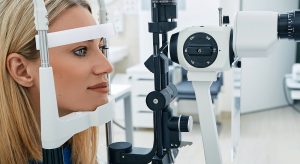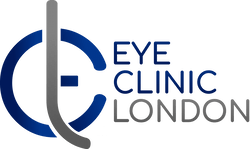How Long Do LASIK Surgery Results Last?

If you’re considering LASIK or have recently had the procedure, you might be wondering how long the results actually last. It’s one of the most common questions people ask, and the answer is reassuring. LASIK is designed to give you long-lasting, stable vision, with many people enjoying clear eyesight for decades. But like every part of your body, your eyes can change as you age, and that can affect how long your LASIK results remain perfect.
In this guide, I want to help you understand exactly what you can expect from LASIK in the long term. I’ll explain how the procedure works, how long results typically last, what factors can influence them, and when an enhancement may be useful. Whether you’re thinking about treatment or you’ve already taken that step, you’ll find everything you need to feel informed and confident about your vision future.
How LASIK Works And Why Results Last So Long

LASIK works by permanently reshaping the curvature of your cornea, allowing light to focus correctly on the retina and improving vision. During the procedure, a thin flap is created, the underlying corneal tissue is precisely reshaped with a laser, and the flap is repositioned. Once the cornea is reshaped, the changes are permanent the tissue does not grow back or revert.
The long-lasting results of LASIK are due to several factors. The corneal reshaping is stable, the removed tissue does not regenerate, and most age-related vision changes occur within the lens of the eye rather than the cornea. The laser correction itself is highly precise and maintains its effect over time.
Because of these factors, LASIK provides a durable solution for correcting short-sightedness, long-sightedness, and astigmatism. Patients can enjoy clear vision for many years without the need for ongoing corrective lenses.
It’s important to note, however, that LASIK does not prevent natural age-related changes such as presbyopia or cataract development, so additional vision aids may eventually be needed as you get older.
How Long Do LASIK Results Typically Last?
LASIK is known for providing long-lasting vision correction, but understanding how results evolve over time can help you set realistic expectations. While most patients enjoy stable, clear vision for many years, natural age-related changes can influence near vision and overall eye health.
Typical stability timeline:
Year 1: During the first year after LASIK, vision is generally stable and clear. Most patients notice that their distance vision has fully improved, and minor fluctuations from the initial healing period have usually resolved. This is when the eyes are fully adapting to the new corneal shape, and patients can comfortably resume most daily activities.
Years 2–10: Between two and ten years post-surgery, vision remains consistent for the majority of patients. Minor changes in prescription are uncommon, and distance clarity is usually maintained. Regular eye check-ups help monitor for any subtle shifts or early signs of age-related eye conditions, ensuring long-term visual stability.
10+ years: After ten years, age-related changes naturally begin to affect vision, particularly near vision due to presbyopia. Some patients may require reading glasses for close work, but distance vision typically remains excellent. Other age-related changes, like early cataract formation or lens stiffening, can occur, but these are independent of LASIK and affect everyone over time.
Is LASIK Permanent?

Yes, LASIK is considered a permanent procedure. The corneal reshaping performed during surgery does not reverse, and the laser correction remains in place indefinitely. Your original prescription is effectively corrected, and the results are long-lasting for most patients.
However, it’s important to understand that natural changes in the eyes can still occur over time, even after LASIK. Factors such as ageing of the lens (presbyopia), gradual prescription drift, hormonal fluctuations, or other health-related changes can affect vision independently of the surgery.
In other words, LASIK permanently corrects the cornea, but it cannot stop the normal ageing process or other natural changes in the eye. Overall, while LASIK provides a durable and reliable vision correction, regular eye check-ups remain important to monitor and manage any age-related or health-related changes that may develop over the years.
What Affects How Long LASIK Results Last?
Most patients experience excellent, long-lasting results after LASIK, but several factors can influence how stable your vision remains over time. These include your age at the time of surgery, the degree of your original prescription, changes in your eyes due to natural aging, and how well you follow post-operative care instructions. Understanding these factors can help you maintain the benefits of LASIK and plan for any future vision needs.
Your Age at the Time of Surgery: Age plays a crucial role in how long LASIK results remain stable. Patients under 25 may still have a changing prescription, which increases the likelihood of slight regression after surgery. Those aged 25–40 typically experience the most predictable, long-lasting results because their prescriptions have usually stabilised and their natural lens ageing hasn’t yet begun. Patients over 40 can still benefit from LASIK for distance vision, but presbyopia the age-related difficulty focusing on near objects will eventually require reading glasses regardless of surgery.
How Stable Your Prescription Was Before Surgery: LASIK works best when your prescription has been stable for at least 12 months. If your vision was still changing before surgery, it may continue to shift afterwards, which can affect the longevity of your results. Stability is one of the strongest predictors of long-term LASIK success because it indicates that your eyes have naturally settled. During a pre-surgery assessment, a specialist can confirm prescription stability and advise on the optimal timing for the procedure.
Your Prescription Strength: The strength of your prescription can also influence long-term outcomes. Patients with low to moderate prescriptions tend to experience extremely stable results, while those with very high prescriptions may have a slightly higher chance of minor regression. Despite this, the majority of patients with strong prescriptions still enjoy excellent long-term vision after LASIK.
Hormonal Changes: Hormonal fluctuations, such as those caused by pregnancy, menopause, or certain medical treatments, can temporarily affect your prescription. While LASIK itself does not cause these changes, it’s important to consider hormonal stability when planning surgery to ensure the most predictable results.
Health Conditions: Certain health conditions can influence long-term visual clarity, including diabetes, autoimmune disorders, severe dry eye, and chronic inflammation. LASIK does not cause these conditions, but patients with such issues may experience more variable outcomes over time. Discussing any medical history with your surgeon helps set realistic expectations for long-term stability.
Natural Age-Related Eye Changes: Even after successful LASIK, natural ageing processes within the eye will eventually affect vision. Presbyopia reduces near vision, lens stiffening makes focusing on close objects harder, and cataracts may develop later in life. These changes occur regardless of surgery and may necessitate reading glasses or future lens procedures, but they do not diminish the distance vision benefits provided by LASIK.
Understanding Presbyopia After LASIK
Presbyopia is a natural, age-related change in vision that usually starts to become noticeable around the ages of 40–45. It occurs because the eye’s natural lens gradually loses flexibility, making it increasingly difficult to focus on objects up close. Tasks that were once effortless, such as reading books, checking a smartphone, or examining small print on labels and menus, can start to feel more challenging and may cause eye strain or fatigue.
It’s important to note that LASIK does not cause presbyopia, nor can it prevent this age-related change. While LASIK is highly effective at correcting distance vision, it cannot alter the natural stiffening of the lens inside the eye. Therefore, even after a successful LASIK procedure with perfect distance vision, near tasks may eventually require additional visual support.
Most people will eventually need reading glasses, multifocal lenses, or other near-vision solutions to maintain comfortable close-up vision. This is a normal part of the ageing process and does not reflect a failure of LASIK or any issue with the surgery itself.
Being aware of presbyopia helps set realistic expectations for post-LASIK vision. While LASIK can give you excellent long-term distance vision, it’s important to plan for the natural changes in near vision that occur with age, and discuss potential options with your eye surgeon to maintain clarity for both distance and close-up tasks.
Do LASIK Results Fade Over Time?
LASIK results do not fade or weaken over time in the way many people fear. The corneal reshaping performed during LASIK is permanent, and the corrected tissue does not revert or grow back. If your vision becomes blurry years after LASIK, it is usually due to natural changes in the eye rather than a failure of the procedure. Common causes include shifts in your original prescription, the lens inside your eye ageing, the onset of presbyopia, or the early development of cataracts.
In other words, LASIK remains fully intact the surgery itself continues to provide the correction it was designed for. Any changes in vision are typically related to the natural ageing process of the eye. Understanding this helps set realistic expectations: LASIK provides long-term correction for refractive errors, but it cannot stop the normal ageing changes that affect near vision or the lens over time.
What Percentage of People Need an Enhancement After LASIK?

LASIK enhancements are relatively uncommon, with only around 5–10% of patients needing an additional procedure within 10–15 years after their initial surgery. This makes the vast majority of LASIK outcomes stable and long-lasting, providing excellent distance vision for many years without further intervention.
You may be considered for a LASIK enhancement if your prescription drifts slightly over time, if you want to sharpen your distance vision, or if your night vision starts to feel less clear. Age-related changes in the eye, such as the natural stiffening of the lens or the onset of presbyopia, can also make enhancements beneficial, helping you maintain optimal visual clarity as your eyes continue to age.
Enhancements themselves are usually quick, safe, and highly effective. Most procedures can be performed in a matter of minutes, with minimal discomfort and rapid recovery, allowing patients to achieve the vision quality they desire without undergoing major surgery again.
Overall, while LASIK provides a long-term solution for the vast majority of people, enhancements offer a reliable and convenient option for those who experience minor changes in vision or wish to fine-tune their results. This flexibility is one of the reasons LASIK continues to be a trusted and popular choice for vision correction worldwide.
How LASIK Enhancements Work
If a LASIK enhancement is ever needed, the procedure is very similar to your original surgery, but it generally requires less correction. During the enhancement, the surgeon carefully lifts or repositions the existing corneal flap to allow precise laser adjustments, ensuring that the cornea is reshaped accurately to refine vision. This targeted approach makes the enhancement less invasive than the initial procedure and minimises recovery time.
Enhancements are typically performed to address mild prescription return, subtle changes in astigmatism, or gradual long-term prescription drift. These small adjustments can make a significant difference in restoring sharp, clear vision, especially for people who want to maintain excellent visual acuity for distance, intermediate, or night-time activities.
Most LASIK enhancements are very quick, often taking just a few minutes per eye. Because the flap has already been created during the original surgery, the recovery is usually faster and more comfortable, with most patients experiencing minimal discomfort and a rapid return to normal activities.
Overall, LASIK enhancements provide a convenient and highly effective way to maintain optimal vision over the long term. They offer reassurance that even if minor changes occur over time, your eyes can be fine-tuned to preserve the sharpness and clarity achieved with the initial LASIK procedure.
How to Maximise the Longevity of Your LASIK Results
While LASIK provides long-lasting vision correction, there are practical steps you can take to maintain stable results over the years. Proper eye care, lifestyle choices, and regular check-ups all play a role in preserving your vision and minimising changes that could affect the outcomes of your surgery. By following a few key guidelines, you can help ensure your LASIK results remain clear and reliable for the long term.
Keep Your Eyes Moisturised: Dry eye can affect clarity. Using artificial tears and maintaining good hydration can help.
Protect Your Eyes from UV Light: Long-term UV exposure can increase the risk of cataracts and accelerate eye ageing.
Wear sunglasses with:
- 100% UV protection
- Polarised lenses (optional but helpful)
Manage Health Conditions: Keeping conditions like diabetes under control supports healthy long-term vision.
Visit Your Optometrist Regularly: Yearly check-ups allow early detection of any changes.
Follow Aftercare Instructions Carefully: Proper healing enhances the durability of your long-term results.
How Long Do LASIK Results Last If You’re Short-Sighted?
LASIK for myopia, or short-sightedness, is widely regarded as one of the most stable and long-lasting vision correction procedures. By precisely reshaping the cornea, LASIK allows light to focus correctly on the retina, providing clear distance vision that can last for decades. Most patients find that their vision remains sharp without the need for glasses or contact lenses long after the procedure.
Enhancements after LASIK for short-sightedness are uncommon. The corneal tissue that is removed during surgery does not regenerate, which means the correction is permanent. Any minor prescription changes that may occur over time are typically minimal and do not significantly affect everyday vision or quality of life.
Short-sighted patients benefit particularly from LASIK because the procedure directly addresses the refractive error causing blurred distance vision. By correcting the myopia, LASIK reduces or eliminates reliance on corrective eyewear, allowing patients to engage in daily activities, sports, and high-impact professions with clear, unobstructed vision.
Overall, LASIK provides an effective, durable, and highly predictable solution for myopia. With proper post-operative care and regular eye check-ups, short-sighted individuals can enjoy many years of stable vision, minimal risk of regression, and the convenience of reduced dependence on glasses or contact lenses.
How Long Do LASIK Results Last If You’re Long-Sighted?
LASIK for hyperopia (long-sightedness) can be very long-lasting, but long-term drift is slightly more common than in myopic patients. Still, most people enjoy stable, clear vision for many years after treatment. Hyperopic eyes tend to change a bit more over time because the natural ageing of the lens can influence how well you focus on near and intermediate distances. Even with this, most patients find their day-to-day vision dramatically improved and remain glasses-free for a long period. If small changes ever do occur later in life, they’re usually gradual and can often be managed with an enhancement or simple reading glasses, depending on your needs.
In fact, many people who were long-sighted before LASIK often describe the results as life-changing because the procedure helps restore both clarity and comfort in daily tasks like reading, using a computer, or seeing clearly at mid-range distances. While hyperopic corrections can be slightly more sensitive to natural ageing changes, the majority of patients remain highly satisfied with their long-term vision. And even if adjustments are needed years later, modern enhancement techniques make it easy to fine-tune your eyesight and maintain sharp vision well into the future.
How Long Do LASIK Results Last If You Have Astigmatism?
LASIK correction for astigmatism is highly reliable and provides long-term stability for most patients. By precisely reshaping the cornea, the procedure ensures that light focuses correctly on the retina, resulting in smooth, accurate vision and excellent clarity. Over time, very few patients experience significant changes, making LASIK a dependable solution for astigmatism.
Modern laser technology allows surgeons to treat astigmatism with remarkable precision, correcting even subtle irregularities in the cornea. This high level of accuracy means the likelihood of regression is very low, and most patients enjoy stable, crisp vision for many years. With proper post-operative care and regular eye check-ups, LASIK can effectively reduce or eliminate the need for glasses or contact lenses, allowing patients to maintain freedom and visual comfort in their daily lives.
Will LASIK Affect Cataract Surgery Later in Life?
No having LASIK in the past does not prevent you from having cataract surgery later on, nor does it make the procedure unsafe. Cataract surgery remains highly successful, and millions of people who previously had laser eye surgery go on to have excellent outcomes when they eventually need cataracts removed. The main difference is that your surgeon will take a few additional measurements of your cornea to ensure the replacement lens (IOL) is calculated as accurately as possible. These measurements help compensate for the corneal reshaping done during LASIK so you still achieve clear, precise vision after cataract surgery.
In most cases, your cataract surgeon may use advanced formulas or imaging technologies to refine the IOL calculation and give you the best possible result. Many patients even choose premium lenses, such as multifocal or toric implants, to further upgrade their vision during cataract surgery something that can be discussed during your assessment. Ultimately, your previous LASIK doesn’t limit your treatment options or your visual outcomes; it simply means your surgeon will approach your case with a bit of extra precision.
FAQs:
- Does LASIK wear off over time?
No, LASIK doesn’t wear off because the reshaping of your cornea is permanent. What can change over time is your natural eye health. Ageing, hormonal shifts or lens changes can affect your clarity years later, but the laser correction itself remains stable. If vision becomes less sharp in the future, it’s usually due to normal age-related changes rather than the LASIK procedure undoing itself. - How long can I expect my LASIK results to last?
Most people enjoy clear, stable vision for many years, and often for decades. Your cornea remains permanently reshaped, so the quality of your correction stays strong. Over time, your eyes may naturally evolve because of ageing, especially after your 40s, but this has nothing to do with the LASIK result itself fading. Many patients continue to see clearly twenty years or more after their procedure. - Will I still need glasses again in the future?
You may eventually need glasses, but not because LASIK stops working. As you age, the natural lens inside your eye becomes less flexible, which causes presbyopia. This affects near vision and happens to everyone. If you find yourself needing reading glasses around age 40–45, that’s a normal part of ageing and isn’t caused by LASIK. - Can LASIK prevent presbyopia?
No, LASIK cannot prevent presbyopia because it only reshapes the cornea and has no effect on the age-related stiffness of your internal lens. Even with perfect distance vision from LASIK, you will eventually need reading correction as you get older. Presbyopia is a natural process and not influenced by laser eye surgery. - How do I know if I might need a LASIK enhancement someday?
You might consider an enhancement if your vision begins to drift slightly after many years. Your prescription may shift naturally as part of ageing or lifestyle factors. An enhancement is usually recommended only if the change affects your daily clarity or comfort. Most people never need one, but if you do, the procedure is quick and usually easier than the original LASIK. - Is it normal for vision to change a little after LASIK?
Yes, small changes over time are completely normal because your eyes continue to age just like the rest of your body. The laser correction doesn’t change, but your natural lens or prescription may evolve. These changes usually happen gradually and may not require treatment unless they affect your day-to-day clarity. - Does LASIK affect cataract surgery later in life?
No, cataract surgery can still be performed very successfully after LASIK. Your surgeon will simply take additional measurements to choose the correct lens implant. Many people who had LASIK earlier in life go on to have excellent outcomes from cataract surgery when they need it during older age. - Why do some people need LASIK again after 10 or 15 years?
The need for a second procedure usually has nothing to do with LASIK fading. Instead, the natural shape or focusing power of the eye may change as part of ageing. If these changes affect your sharpness, an enhancement can restore clarity. Only a small percentage of people need this, and the correction is usually minor. - If my prescription was high, will my LASIK results be less long-lasting?
People with very strong prescriptions sometimes experience a small amount of regression many years later, simply because their eyes were naturally more prone to change. Even then, most still enjoy many years of excellent vision before noticing any shift. If a slight change does happen, a touch-up is usually enough to restore full sharpness. - Can lifestyle habits affect how long LASIK results last?
Yes, they can. Dryness, heavy screen use, UV exposure and unmanaged health issues like diabetes can all influence the long-term health of your eyes. While these don’t undo LASIK, they can affect how clear and comfortable your vision feels over time. Taking care of your eyes helps maintain the best possible long-term results.
Final Thoughts: Understanding How Long Your LASIK Results Can Truly Last
When you look at the long-term picture, LASIK is one of the most reliable and lasting vision correction procedures available today. Your cornea stays permanently reshaped, meaning the clarity you enjoy after surgery isn’t something that simply fades away. What does change over time is your natural eye health, especially as you move into your 40s and beyond, and that’s completely normal for everyone whether they’ve had LASIK or not.
By understanding factors like age, prescription strength, eye health and natural ageing, you’ll have a much clearer idea of what to expect from your vision in the years to come. The more informed you are, the more confident you’ll feel about your long-term visual future. And if you ever need a touch-up or simply want reassurance about how your eyes are doing, you’ll always have options. If you’re exploring whether Lasik surgery in London could benefit you, get in touch with us at Eye Clinic London to schedule your consultation.
References:
- Castro-Luna, G., Pérez-Roche, A., Antón, A., Hernández-Alférez, H. & Jurado, D., 2020. Long Term Follow-Up Safety and Effectiveness of Myopia Correction Using PRK and FS-LASIK: A 10-Year Retrospective Study. International Journal of Environmental Research and Public Health, 17(23), 8729. Available at: https://www.mdpi.com/1660-4601/17/23/8729
- Moshirfar, M., McCaughey, M.V., Fenzl, C.R., Skanchy, D.F. & Hoopes, P.C., 2021. Five-year outcome of LASIK: incidence, management, and visual outcomes. Journal of Clinical Medicine, 10(14), 3067. Available at: https://www.mdpi.com/2077-0383/10/14/3067
- Taneri, S., Ferraz, M., Siedlecki, J. & Auffarth, G.U., 2022. Long-term outcomes of PRK, LASIK and SMILE. Clinical Ophthalmology, 16, pp.557–563. Available at: https://pubmed.ncbi.nlm.nih.gov/34241701/
- Kato, N., Sasaki, H. & Ichikawa, K., 2008. Five-year outcome of LASIK for myopia. Journal of Refractive Surgery, 24(5), pp.549-555. Available at: https://pubmed.ncbi.nlm.nih.gov/17900692/
- Ikeda, T., Sogabe, Y., Sugano, A. et al., 2017. Twelve-Year Follow-Up of Laser In Situ Keratomileusis for Myopia and Myopic Astigmatism. Clinical Ophthalmology, 11, pp.1075–1082. Available at: https://pmc.ncbi.nlm.nih.gov/articles/PMC5449750/

